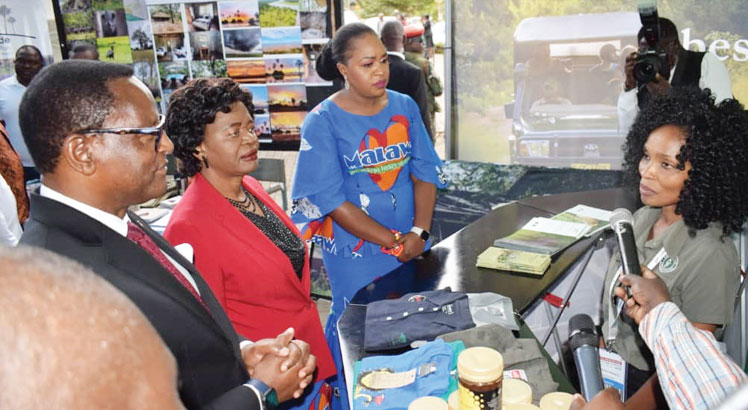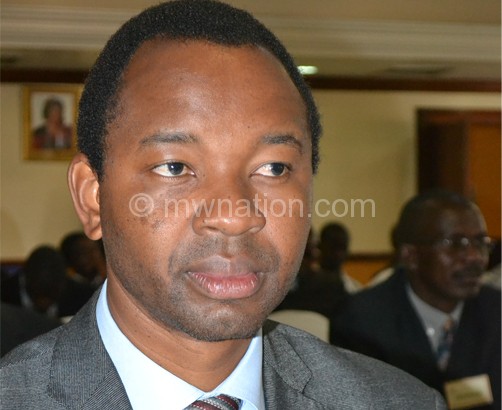Malawi Tourism Council says investment in tourism products development and improved road network are critical to grow the sector and boost economic growth.
Speaking yesterday during the closing ceremony
of the two-day Fourth Malawi International Tourism Expo themed ‘Takulandirani’ or ‘Welcome to Malawi’ at Bingu International Convention Centre in Lilongwe, the council’s board chairperson Justin Dzinkambani said investment in tourism product development should be significant to grow tourist numbers and sustain the sector.
He said: “A lot needs to be done. One notable clear issue is development of tourism products that are meaningful and sensible.
“Beyond these products, we need to create better infrastructure for the products with a passable road network, but also look at agriculture tourism to enhance our product.”
Dzinkambani also urged the government to provide necessary enablers for industry operators such as road network infrastructure to enhance access to business facilities.
“Government needs to assist in creating a business environment that would enable the private sector to develop faster. We also need a legal framework that is seamless and friendly to help tourism sector growth,” he said.
The First Couple and Kamtukule at African Parks pavilion
But President Lazarus Chakwera, who officially closed the expo, challenged tourism players to be innovative and observed that the sector has failed to embrace change to fully exploit the potential.
He said the local tourism players have limited themselves on the definition of tourists as people from developed countries as well as worked in isolation.
The President said diversified product offerings will bring on board more customers and give the players better returns that can support the country’s socio-economic development.
Chakwera said: “We must not think of tourists as being of one kind because while it is common to think of tourists as people who travel for pleasure, there are also tourists who go to places for business and other purposes who then make use of their time in other countries to engage in tourist activities.”
“It is critical that tourism players do not work in isolation, but engage players in other sectors who may very well be in a better position to attract foreigners to our land.”
The President further implored players in the sector to package products for different groups.
He said: “I wish to discourage the tendency in the tourism sector to not design services and products that also cater to the needs of Malawians as local tourists.
“In the countries that have succeeded in turning their tourism into an economic engine, many of their tourism services are also made accessible and affordable for locals.”
Minister of Tourism Vera Kamtukule said the expo was oversubscribed as there were 115 exhibitors this year.
“People had been coming to book for space up to four days ago and we actually had to send back some,” she said.
The Malawi Government recognises tourism as a priority sector that can be used as a vehicle for economic growth and poverty alleviation as outlined in the national development plan, the Malawi 2063 (MW2063).
However, despite the stated potential, Malawi has struggled to tap from the global tourism boom since the onset of the Covid-19 pandemic, with figures from the World Travel and Tourism Council indicating that in 2021 the country generated $14.6 million (about K15.1 billion) from international visitor spending, a decline from the previous year’s $34.2 million (about K35 billion).
Before the pandemic, in 2019 Malawi earned $64.7 million (about K67 billion) in international visitor spending, which is 47 percent less of what the country generated in 2020.
In the current financial year, Ministry of Finance and Economic Affairs has introduced several incentives to promote investments in the sector These include zero import duty, zero import excise and zero value-added tax on the importation of a number of goods to revive the sector.
Over the past six years, the total contribution of travel and tourism to the gross domestic product (GDP) has decreased from an average rate of 7.3 percent between 2015 and 2019 to 5.7 percent in 2020 before slightly increasing to 5.8 percent in 2021 according to World Travel and Tourism Council (WTTC).
The ex p o a t t r a c t e d potential buyers of products and international media to appreciate the country ’s culture and natural beauty, among other tou r ism attractions
The post Council bares tourism hitches first appeared on The Nation Online.
 Moni Malawi
Moni Malawi 

